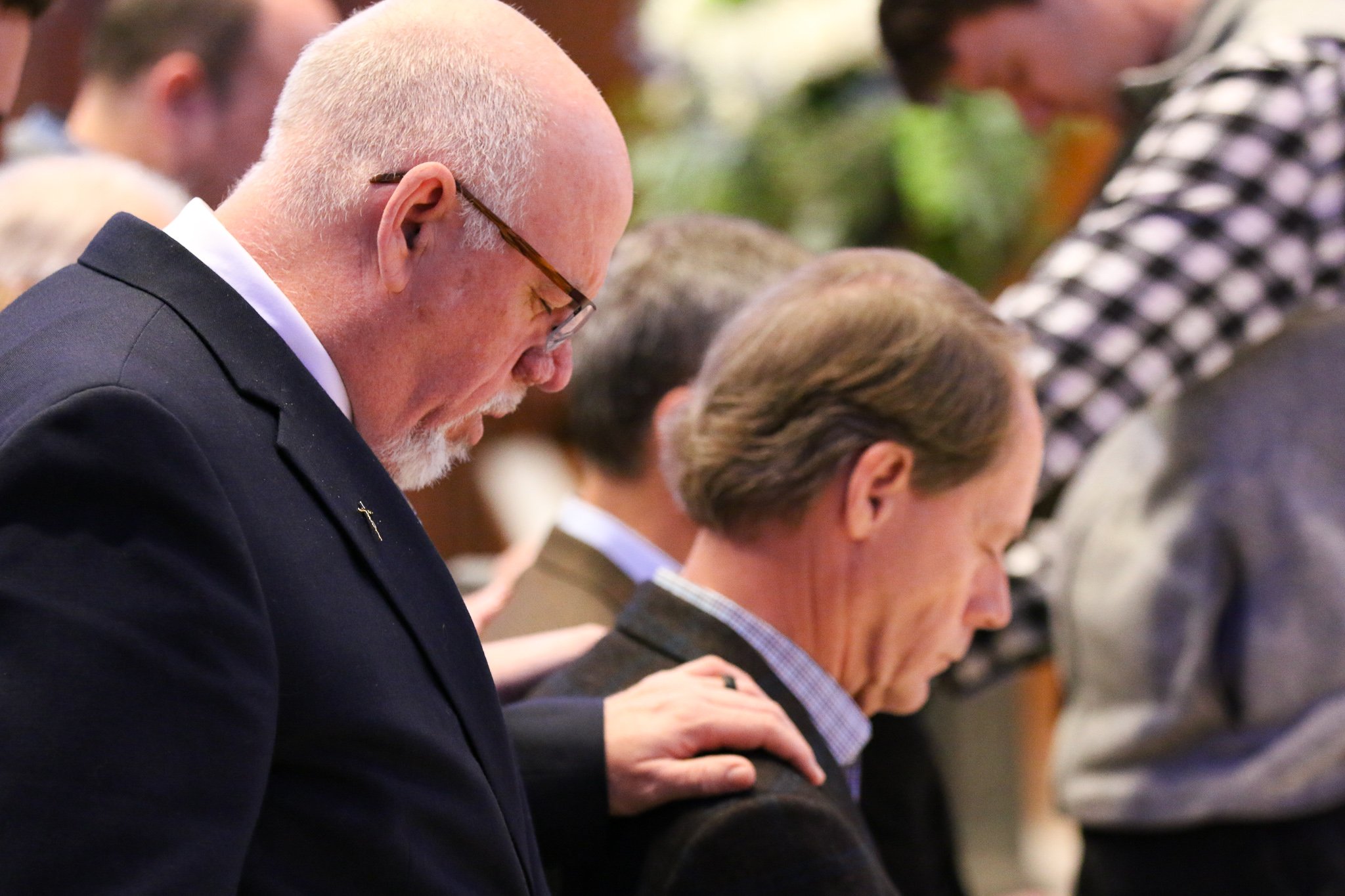
Lay Leadership
What are the marks of a Christian leader?
The fundamental way in which we lead is to reach out to people in the name of Jesus Christ, nurture and strengthen them in their journey of discipleship and to send them into the world to be the church—serving, inviting and receiving others in the name of Christ. Effective leaders participate in all aspects of this vision, working to keep all of its aspects in concert.
Leaders in the church must be, first and foremost, spiritual leaders who model and embrace Christian discipleship. By practicing our core values—worship, grow, serve, care and share—church leaders live out the primary task of the church. The watching world should be able to look to a congregation’s leaders for spiritual example and direction because true leaders display faith that matters. People’s lives are changed by their influence.
Your Membership Vow
Every member of Christ Church has taken a vow to faithfully support the church with his or her prayers, presence, gifts, service and witness. Our members, and especially our leaders, should be able to show tangible marks of living out this vow, including:
Have a personal testimony and look for opportunities to share it. (1 Peter 3:15)
Have a daily, disciplined time with God for Bible study and prayer. (Mark 1:35, Luke 18:1)
Attend worship each weekend, unless prevented by illness or another commitment of very high importance. (Luke 4:16, Acts 2:46, Hebrews 10:25)
Be a part of a Community Life Group focused on Christian growth and fellowship. (Acts 2:42)
Identify at least one of your spiritual gifts and use it in a church-related ministry to others. (1 Corinthians 12:7, Ephesians 4:11-13)
Tithe. (Malachi 3:8-10, 1 Corinthians 16:2, Luke 11:42)
Always conduct your personal and professional life so that God is always glorified, and you do not dishonor yourself or the church. (Ephesians 5:15-18, 1 Corinthians 10:31-33)
Leaders use their gifts and talents to enable others to use their gifts and talents to the fullest potential.
The flow of information, inspiration, guidance and vision from leaders is an encouragement to others on their spiritual journey. Leaders help others to see new possibilities. When leaders are focused on the vision of the church, community is built and ministry occurs. The church focused on God is alive with creative energy aimed at transformation.
Administrative Committee Descriptions
The Church Council, formerly the Administrative Board is a part of the decision-making, evaluating and forward-looking body of the church. The Church Council's primary work is one of accountability rather than management. The key criterion for nomination to this Board is for the nominee to have leadership experience in other Christ Church ministries or ministry organizations. This committee meets quarterly.
Primary Tasks and Responsibilities of the Church Council
Provides for ministries of nurture, outreach and witness through adoption of the church budget and assurance that the financial needs of the church are met; oversight of the organization for ministry of the congregation; and seeing to the congregation’s involvement in ministry.
Is the administrative agency of the Charge Conference. Led by the District Superintendent, the annual Charge Conference elects the officers of the church, evaluates the effectiveness of mission and ministry within the church, sees to matters of membership and sets support for pastor(s) and staff.
Acts as a consultative group for issues that the Executive Committee deems should be reviewed by a wider authority.
The Board of Trustees supervises and maintains all property belonging to the congregation. Good stewardship, common sense and prudence dictate that the church property be properly kept as a way to honor God and to facilitate the ministry of the church. This committee meets quarterly.
The job of the Committee on Finance is to oversee the finance system for the congregation. The finance system is the processes of raising, managing and dispersing the funds so that the purpose of the church can be achieved. Sub-committees of the Finance Committee include the Audit and Stewardship committees. This committee meets in early January and quarterly thereafter.
The Executive Committee is part of the decision-making, evaluating and forward-looking body of the church. The Executive Committee’s role is oversight of the essential "detail work" that must be accomplished to make the congregation effective. The committee's responsibility is to act on matters that are not practical for the full Church Council to consider and to refer matters to the Church Council that it deems should be reviewed by a wider authority. This committee meets monthly.
The Nomination Committee determines the diverse ministry tasks and the skills needed for leadership on various committees. The Committee recommends to the Charge Conference the names of people to serve on church committees. This committee meets for several weeks in late summer/fall.
The Staff-Parish Relations Committee functions much the same as the personnel department in other organizations. The committee's primary responsibility is to build an organization that can fulfill the purpose of the church, including working with the Bishop on clergy appointments and with the staff on human resource matters. This committee meets monthly.
